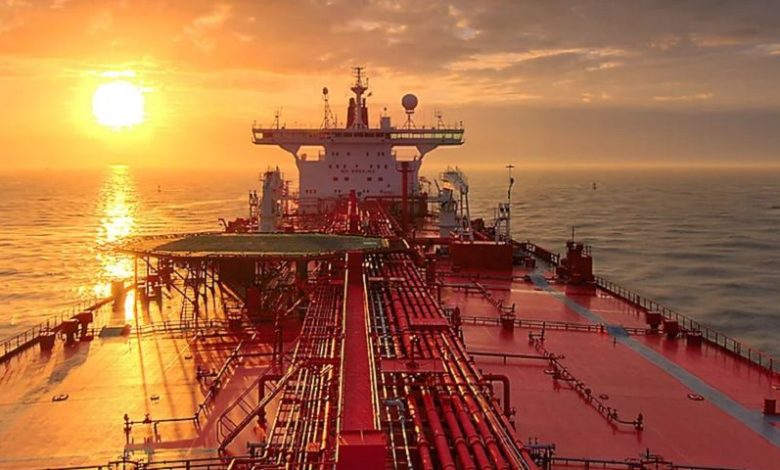ICS proposes subsidy system for green fuel use to reach net zero targets

The International Chamber of Shipping (ICS) has submitted a proposal to shipping’s global regulator, the International Maritime Organization (IMO), for a zero-emission shipping fund (ZESF).
To move forward with workable solutions to meet net zero targets, shipowners globally have agreed to mandatory contributions on ships’ GHG emissions to raise billions of dollars annually. This would accelerate the transition of the global commercial shipping fleet to net zero emissions by 2050 and support the maritime GHG reduction efforts of developing countries.
The new proposal, co-sponsored by the Bahamas and Liberia, builds on the feebate concept put forward by the Government of Japan and support from EU States at IMO for a flat rate levy-based global contribution system. The updated proposal also adds a structure for how the billions of dollars raised will be used, including those funds to be allocated for use in developing countries.
The Zero Emission Shipping Fund and the feebate mechanism will be considered by the IMO Member States at their next round of GHG negotiations in March. Governments have already unanimously committed to developing a GHG pricing mechanism for international shipping by 2025. If governments agree, the ZESF will be approved next year to help achieve net zero GHG emissions from shipping by or close to 2050, in line with the targets adopted by IMO Member States.
The proposal will include support to produce zero and near-zero marine fuels and the roll-out of new bunkering infrastructure in developing countries’ ports worldwide, as well as supporting training in the safe use of new fuels.
Under the proposal, contributions from ships per tonne of CO2e emitted will be used to reduce the significant cost gap between zero GHG fuels and conventional fuel oil, providing financial rewards to ships for the GHG emissions prevented by new marine fuel use.
Clarksons Research made an impact assessment for the ICS stating that a contribution rate which adds a cost in a range between $20 to $300 per tonne of fuel oil consumed would have no disproportionately negative impacts on national economies in terms of delivered cargo prices.
The ZESF will allow the shipping sector to achieve a take-off point in its use of more expensive green fuels, such as ammonia, hydrogen, sustainable biofuels, synthetic methanol, and synthetic LNG.
“A global GHG pricing mechanism for shipping urgently needs to be agreed on next year, which will de-risk investment in zero GHG marine fuels and provide billions of dollars of funds to support developing countries. The first IMO target for 2030 is less than six years away. If we don’t achieve a take-off point in the production and uptake of zero GHG marine fuels by 2030, it’s hard to see how net zero will be achieved by 2050,” said Guy Platten, ICS secretary-general.
This sort of proposal is not the first go of the ICS to help with the transition to green zero-carbon fuels. The first one, back in 2021, was for a compulsory R&D fund to develop zero-carbon tech and the development of a carbon levy for shipping to expedite the transition to more expensive new fuels.
Then, in 2023, the ICS called for shipowners to make mandatory contributions per tonne of CO2 emitted to create a new IMO fund which would reward uptake by shipowners of low and zero-carbon fuels and provide funding for alternative fuel production and bunkering infrastructure in developing countries. ICS suggested that total funds of about $10bn per annum – which would require an initial contribution quantum of about $50 per tonne of marine fuel oil consumed – could be sufficient to fund a rewards programme up until about 2030. That was double the amount of funds from previous proposals which sought about $5bn a year.

Getting better. But since we cannot even sort out the dark tanker fleet and stop six hundred odd ships from from running around with “sanctioned” oil, just how big do we thing the trade in “untaxed” bunkers will be?
Go nuclear
https://www.ecosia.org/search?method=index&q=the%20billions%20in%20subsidies%20fossil%20fuel%20interests%20receive
Hardly think it will “de-risk” investment, it may minimize it but certainly won’t eliminate it. One thing for sure is some shipowners will be left with stranded assets as some stage. Ordering a propulsion system/fuel for a ship today for an expected twenty year life is somewhat of a lottery with every year bringing new global and regional requirements with none of the future fuel options, being banded around, having the cost, green supply capacity, integrity of supply or infrastructure that the FO/DO bunker industry of today has.
Any one thinking this fund will remove all risk should go down to the casino with his money instead.
Maybe the first move is to do something about the billions in subsidies fossil fuel interests receive. It is something people shy away from. Without those subsidies fuel oils would befar more expensive.
https://www.ecosia.org/search?method=index&q=the%20billions%20in%20subsidies%20fossil%20fuel%20interests%20receive